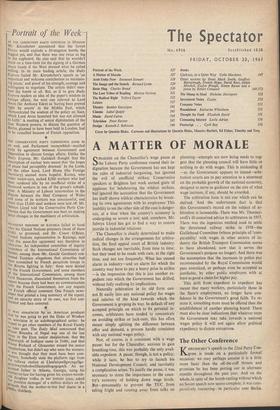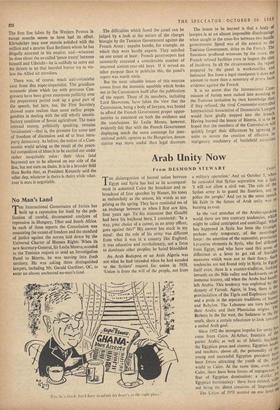The Other Conference
KHRUSHCHEV'S speech to the 22nd Party Con- gress is made on a particularly formal occasion; we may perhaps assume it is a little more basic than the off-the-cuff threats and promises he has been putting out in alternate months throughout the past year. And on the whole, in spite of the bomb-rattling without which no Soviet speech now seems complete, it was com- paratively reassuring—in particular over Berlin. The firm line taken by the Western Powers in recent months seems to have had its effect. Khrushchev may now remain satisfied with the million and a quarter East Berliners whom he has illegally annexed to his empire; and—whatever he does about the so-called 'peace treaty' between himself and Ulbricht—he is unlikely to carry out his threats to let that bearded horror try to vio- late the Allied air corridors.
There was, of course, much anti-colonialist cant from this super-imperialist. The grandiose economic plans which (as with previous Con- gresses) have been given enormous publicity over the preparatory period took up a good part of the speech; but here, too, the First Secretary showed more realism than some earlier propa- gandists in dealing with the still wholly unsatis- factory condition of Soviet agriculture. The main internal enemy, politically speaking, remains 'revisionism'—that is, the pressure for some sort of freedom of discussion and of at least intra- party democracy. As before, the notion of a Com- munist world arising as the result of the peace- ful competition of ideas is to be carried out under rather inequitable rules: their ideas (and bayonets) are to be allowed on our side of the line, but not ours on theirs. It is in a broader field than Berlin that, as President Kennedy said the other day, whatever is theirs is theirs while what- ever is ours is negotiable.







































 Previous page
Previous page